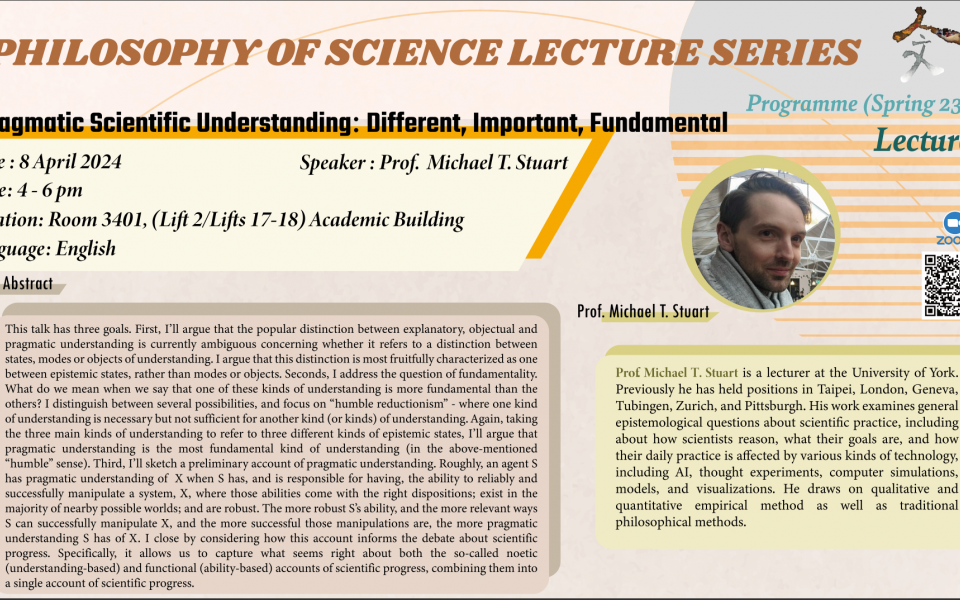Philosophy of Science Lecture Series - Pragmatic Scientific Understanding: Different, Important, Fundamental
This talk has three goals. First, I’ll argue that the popular distinction between explanatory, objectual and pragmatic understanding is currently ambiguous concerning whether it refers to a distinction between states, modes or objects of understanding. I argue that this distinction is most fruitfully characterized as one between epistemic states, rather than modes or objects. Second, I address the question of fundamentality. What do we mean when we say that one of these kinds of understanding is more fundamental than the others? I distinguish between several possibilities, and focus on “humble reductionism” – where one kind of understanding is necessary but not sufficient for another kind (or kinds) of understanding. Again, taking the three main kinds of understanding to refer to three different kinds of epistemic states, I’ll argue that pragmatic understanding is the most fundamental kind of understanding (in the above-mentioned “humble” sense). Third, I’ll sketch a preliminary account of pragmatic understanding. Roughly, An agent S has pragmatic understanding of X when S has, and is responsible for having, the ability to reliably and successfully manipulate a system, X, where those abilities come with the right dispositions; exist in the majority of nearby possible worlds; and are robust. The more robust S’s ability, and the more relevant ways S can successfully manipulate X, and the more successful those manipulations are, the more pragmatic understanding S has of X. I close by considering how this account informs the debate about scientific progress. Specifically, it allows us to capture what seems right about both the so-called noetic (understanding-based) and functional (ability-based) accounts of scientific progress, combining them into a single account of scientific progress.
Michael T. Stuart is a lecturer at the University of York. Previously he has held positions in Taipei, London, Geneva, Tubingen, Zurich, and Pittsburgh. His work examines general epistemological questions about scientific practice, including about how scientists reason, what their goals are, and how their daily practice is affected by various kinds of technology, including AI, thought experiments, computer simulations, models, and visualizations. He draws on qualitative and quantitative empirical methods as well as traditional philosophical methods.
